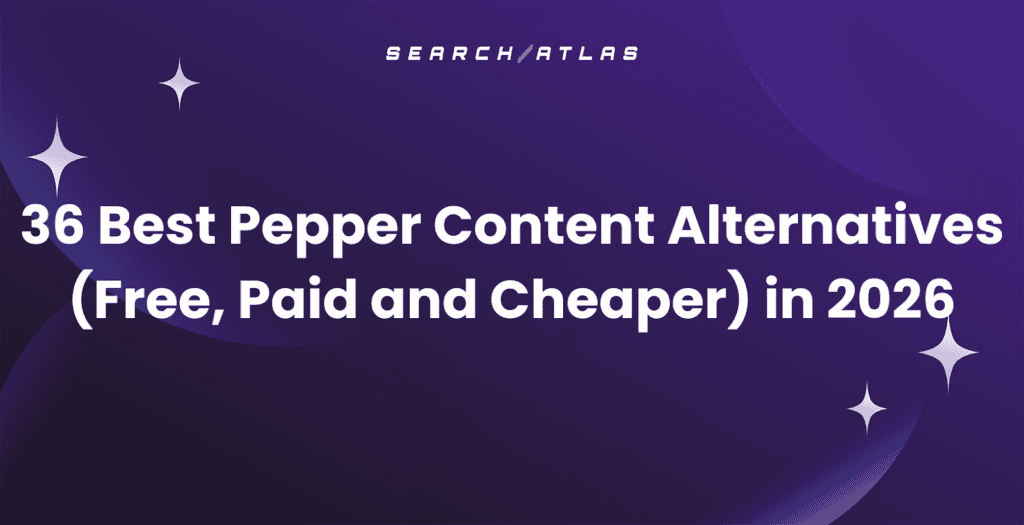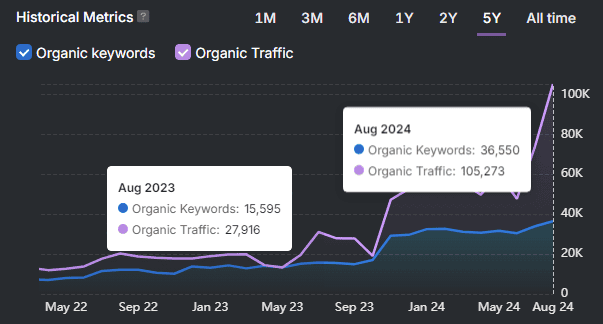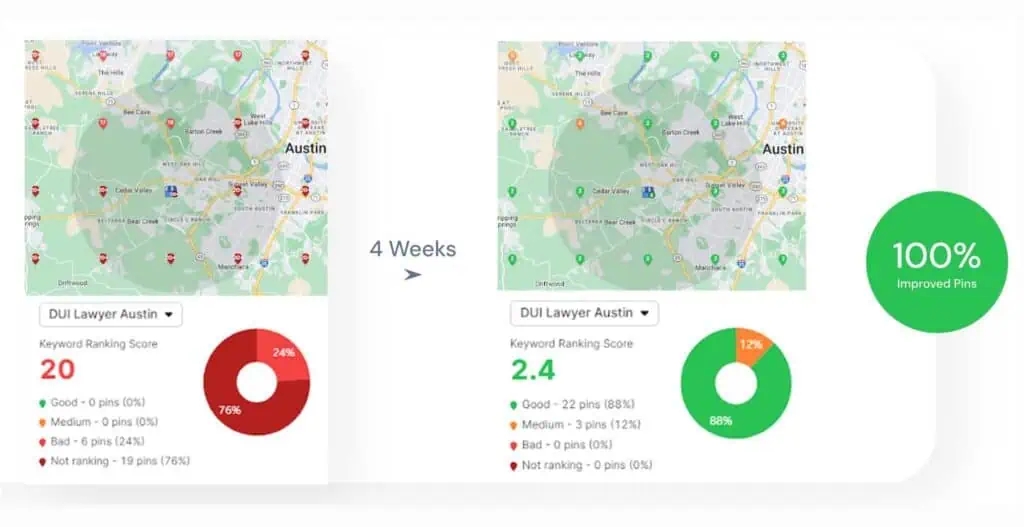Think just listing your business online is enough to establish a local presence? Without mastering local ranking factors, you don’t have a real edge.
Google relies on signals like your location, online reviews, and website engagement to decide which businesses appear at the top. But the ranking criteria are evolving rapidly.
As AI advances, smarter algorithms better understand user intent, and what worked yesterday might not work tomorrow. To stay visible, your strategy needs to evolve with today’s best practices.
We’ll break down the main elements shaping local ranking factors in 2025 and the latest tactics for implementing a strong local SEO strategy that boosts visibility and attracts customers.
Let’s set your local business up for success. 🏆
What are the Local Ranking Factors?
Local ranking factors are the criteria search engines use to determine which businesses appear in local search results. They signal your credibility and relevance to people searching in your area.
With 46% of all Google searches focused on local intent, you need to optimize your website and content for local SEO.
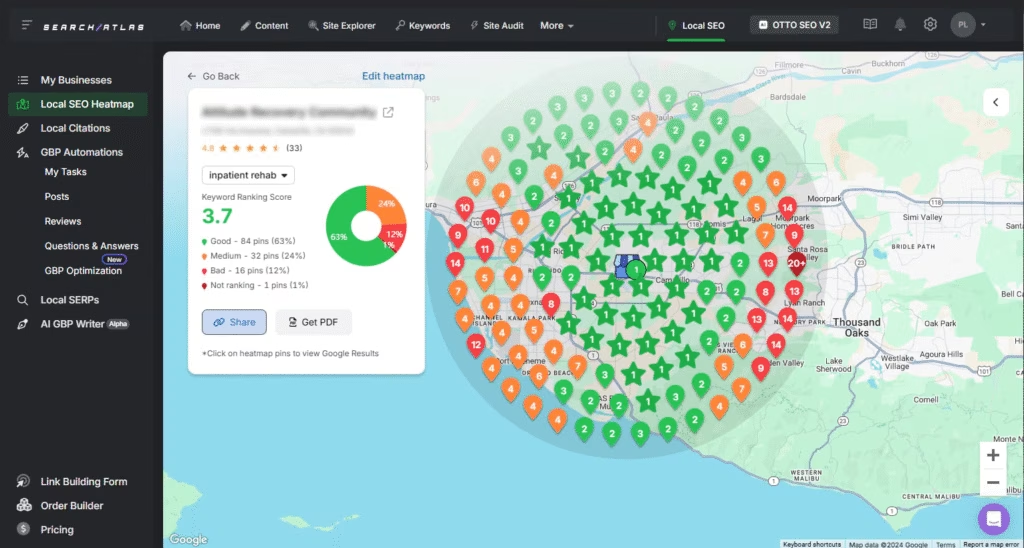
Ignoring these factors means losing potential customers to competitors who are actively improving their online presence.

How Google Interprets Local Ranking Factors?
Google’s local ranking factors are now powered by machine learning and AI. Algorithms like RankBrain go beyond keywords, analyzing intent, behavior, and engagement to assess relevance, proximity, and authority.
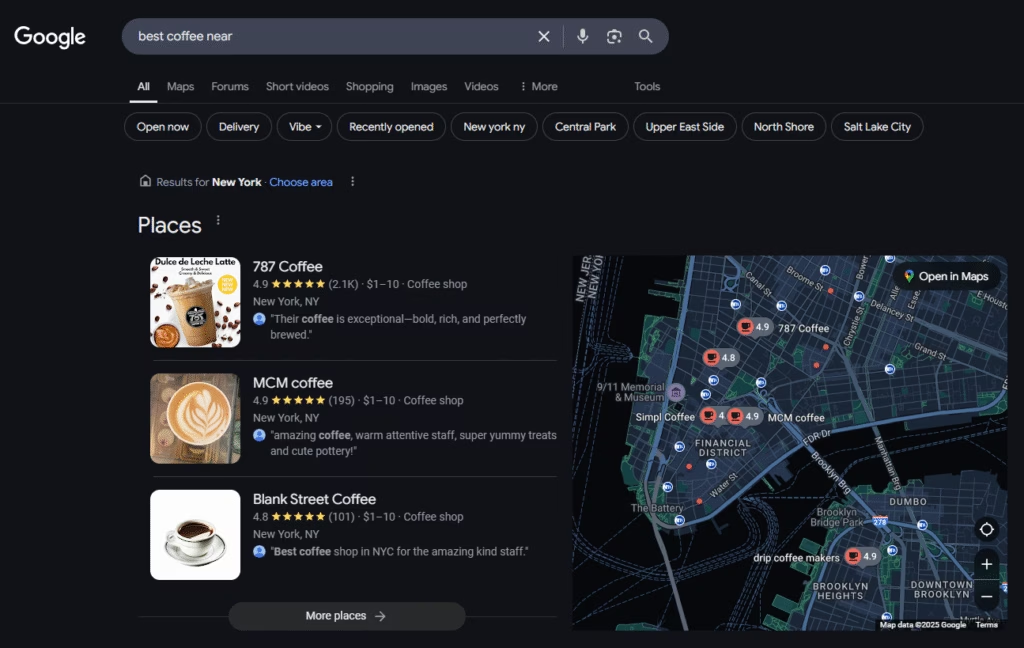
Take the search “best coffee near me” as an example. Google considers:
- Relevance: Does the business truly fit the search intent?
- Proximity: Is it close enough to the user’s location?
- Engagement: Do people interact with the business (clicks, calls, reviews)?
It’s important to note that Google’s algorithm continuously learns from how people search and interact, becoming smarter over time. Your strategy must evolve with it to remain competitive.
Up next, we’ll explore the most important factors shaping local search rankings and how you can optimize them to boost your visibility.
8 Local Ranking Factors That Directly Affect Your Visibility
Let’s take a closer look at the different factors that influence local search rankings. These elements are typically grouped into eight main categories.
1. Google Business Profile Tasks
A Google Business Profile (GBP) is the official business listing that appears on Google Search and Maps when people look for local services.
It displays essential details like your business name, address, phone number, website, hours, and customer reviews.
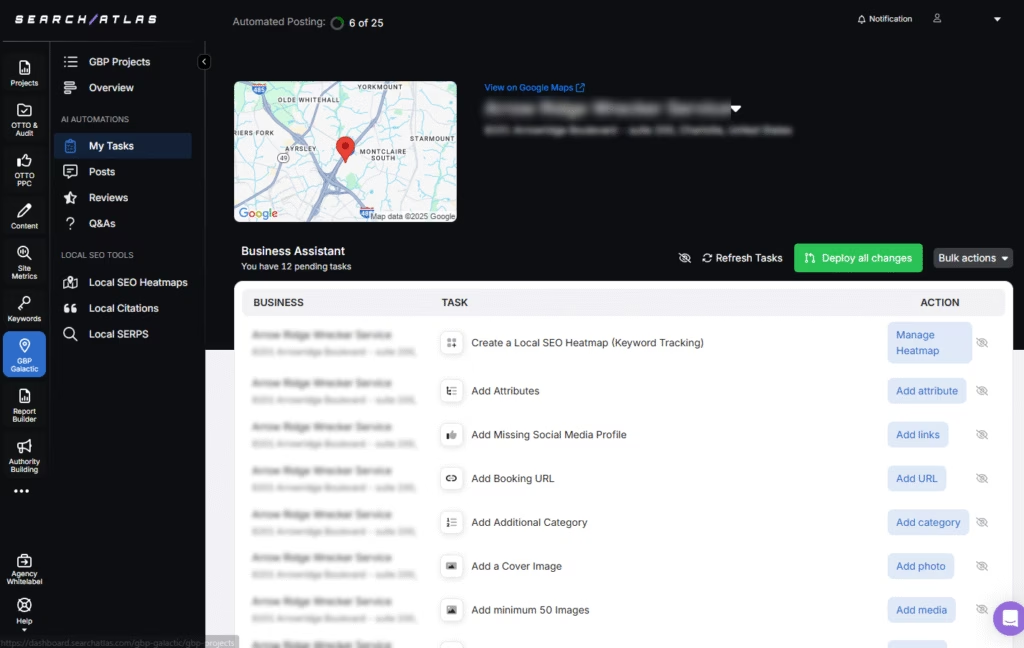
Google uses information from your GBP to decide when and where to show your business in local search results. Some of the most influential factors include:
- Business Name Optimization: If your business name includes relevant keywords aligned with customer intent, it impacts rankings.
- Category Selection: You can choose multiple categories for your business. Selecting the most relevant ones increases the chances of appearing in the right local searches.
- Linked Website: The website linked to your GBP matters. A homepage with strong domain authority and relevant content can carry more weight in rankings than a less-optimized subpage.
2. Citations Across the Web
A citation is any mention of your business on external websites, helping search engines verify whether a business’s details are legitimate and well-established across the web.
They appear in two primary forms:
- Structured Citations: Appear in official business directories like Yelp, TripAdvisor, and Nextdoor, following a standardized format.
- Unstructured Citations: Occur naturally within content, such as blog posts, news articles, or other websites that mention your business.
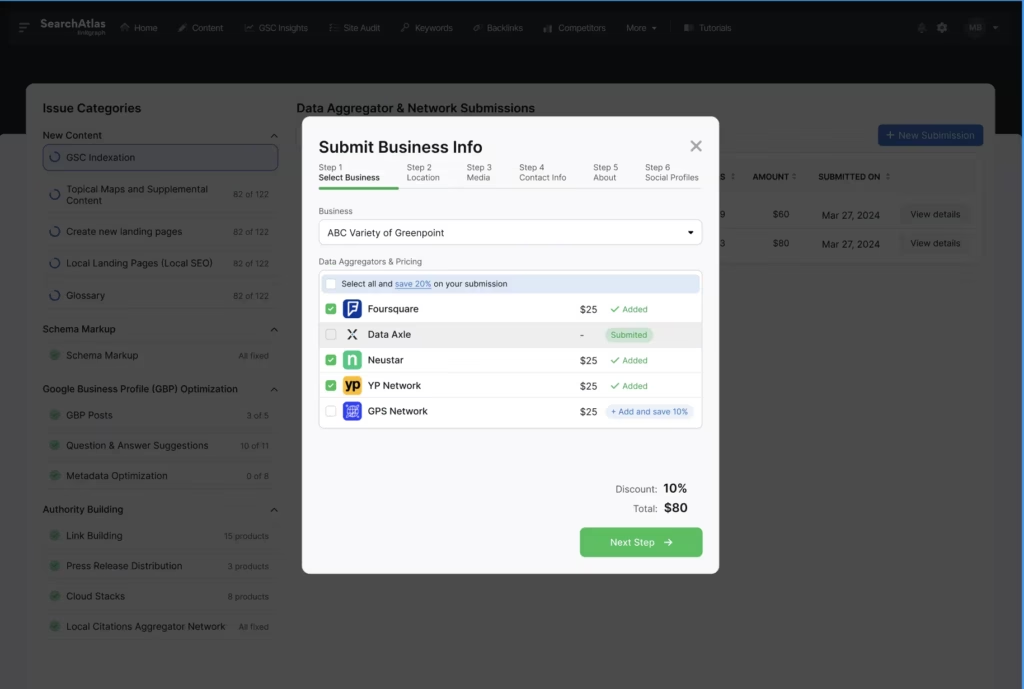
Google considers both types when ranking local businesses, but quality matters just as much as quantity. Some of the most important citation factors include:
- Source Credibility: Mentions from trusted, high-authority sites carry more weight.
- Industry and Local Relevance: Citations from industry-specific or local sources support topical and geographic relevance.
- Listing Reach: The more reputable directories featuring your business, the stronger your authority.
3. Link Building and Authority
Links influence rankings by signaling trust and topic relevance. In the context of local SEO, they can affect how well your business ranks in search results for location-based queries:
- Internal Links: These connect pages within your own website, helping search engines understand content relationships and distribute authority across your site.
- External Links (Backlinks): These come from external websites and point to your site, serving as signals of trust and credibility.
Several factors determine the impact of these links:
- Quantity: The total number of internal and external links pointing to your pages.
- Relevance: Links from sites that are related to your industry or location carry more weight, especially when they come from reputable or locally relevant sources.
- Diversity: A broad range of unique and credible sources strengthens trust signals.
- Anchor Text: The words used in a link help search engines understand what the linked page is about.
4. User Interaction Patterns
Behavioral signals are dynamic and evolve with user patterns. When a user sees your business in local search results, Google monitors how they interact with it.
These analyses of user behavior provide Google with insights into how relevant, helpful, or appealing your business is to real users in real-time. They include:
- Click-Through Rate (CTR): How often users choose your listing from the search results. A higher CTR suggests your business is relevant to their query.
- User Engagement: Actions like clicking on your website link, scrolling through photos, or opening the Q&A section of your profile indicate that users find your listing useful.
- Time Spent: The amount of time someone spends on your website after clicking through from search. A longer stay can indicate valuable content and a positive experience.
- Google Business Profile Activity: Interactions such as clicking for directions, placing a call, or browsing posts also help Google assess your local relevance and appeal.
5. Website Strength and Credibility
Businesses that follow Google’s E-E-A-T signals help search engines assess how trustworthy and relevant they are compared to competitors in the same area. Here are the most influential metrics:
- Page Authority: Individual pages that attract backlinks and provide valuable content support better local visibility, especially when linked to your GBP.
- NAP Accuracy: Your business details (name, address, and phone number) help confirm credibility.
- Content Quality: Local pages that demonstrate real experience (like service area breakdowns, team bios, or how-tos tailored to your niche) help prove you’re the real deal.
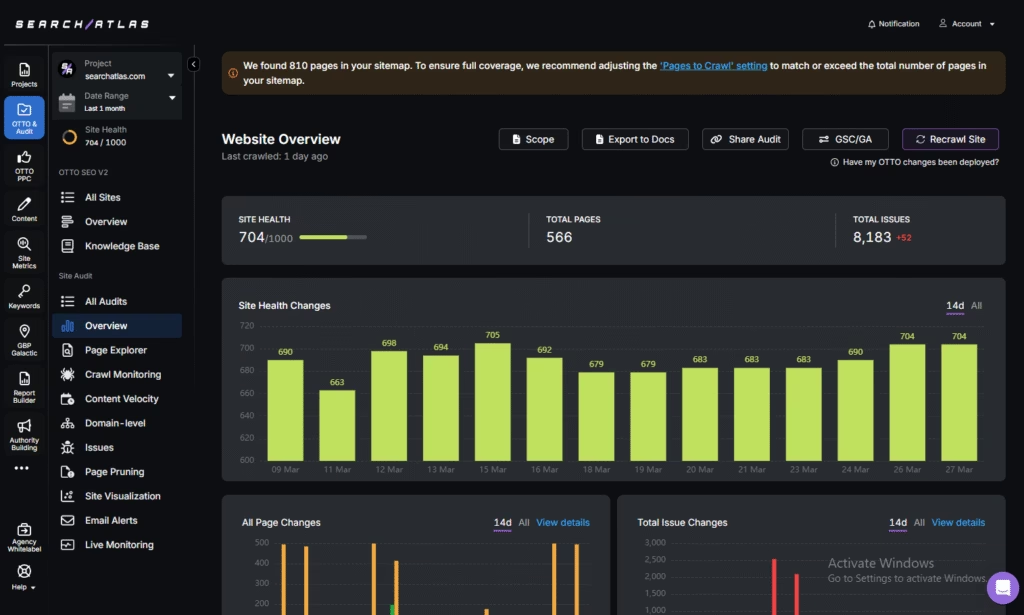
6. Hyper-Local Relevance
Search has become more conversational, contextual, and personalized. This shift emphasizes ultra-specific location data to deliver results tailored to a user’s immediate surroundings:
- Search Proximity at Time of Query: A business a block away may appear above another option that’s technically more relevant, simply due to its proximity when the search occurs.
- Localized Content Signals: Google recognizes businesses that align their online presence with a specific district, neighborhood, or landmark.
- Google Map Pack Personalization: The local Map Pack responds to both proximity and intent, dynamically prioritizing businesses that are nearby and reflect local user preferences.
Hyper-local signals allow businesses to surface in highly relevant, moment-based searches, especially when users are actively looking for something nearby.
7. Customer Reviews
Reviews influence how your business performs in local search through the content and frequency of customer feedback. Ranking signals tied to reviews include:
- Review Quantity: A steady flow of recent reviews suggests ongoing activity and relevance, which positively impacts visibility.
- Sentiment Analysis: A strong pattern of positive sentiment reinforces trust and boosts your position in search results.
- Review Distribution: Feedback across multiple platforms contributes to your business’s perceived authority.
- Response Patterns: How businesses respond to reviews (especially critical ones) can influence how Google gauges their engagement level.
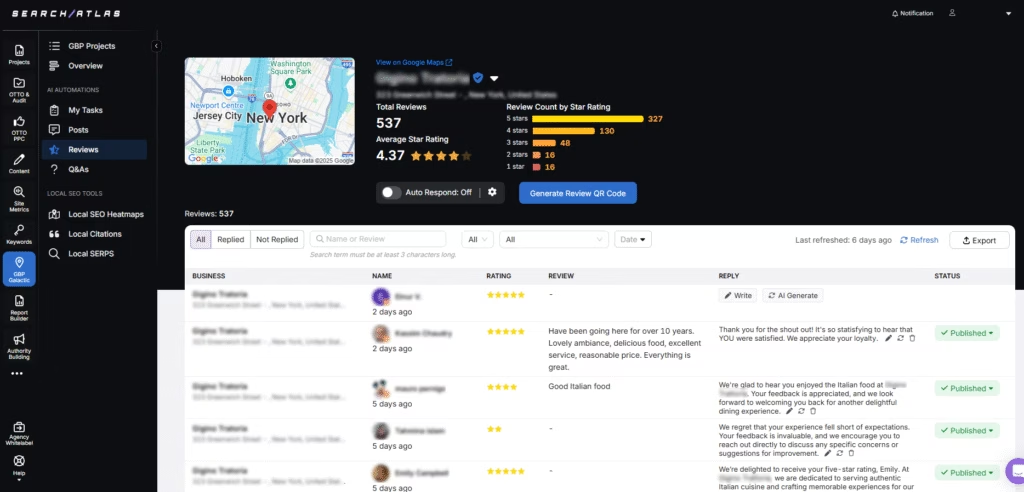
8. Mobile Usability and Experience
With Google’s mobile-first indexing, how users experience your site on mobile devices directly affects your placement in search results. Sites that are slow, difficult to navigate, or inconsistent across devices may rank lower in local results:
- Responsive Design: Sites that work smoothly across screen sizes help ensure consistent indexing and better user interaction.
- Page Load Speed: Google tracks how fast pages load on mobile devices. Sites with long load times often see lower visibility.
- Voice Search Behavior: Google adapts local rankings based on how users phrase natural language queries, particularly when using voice assistants.
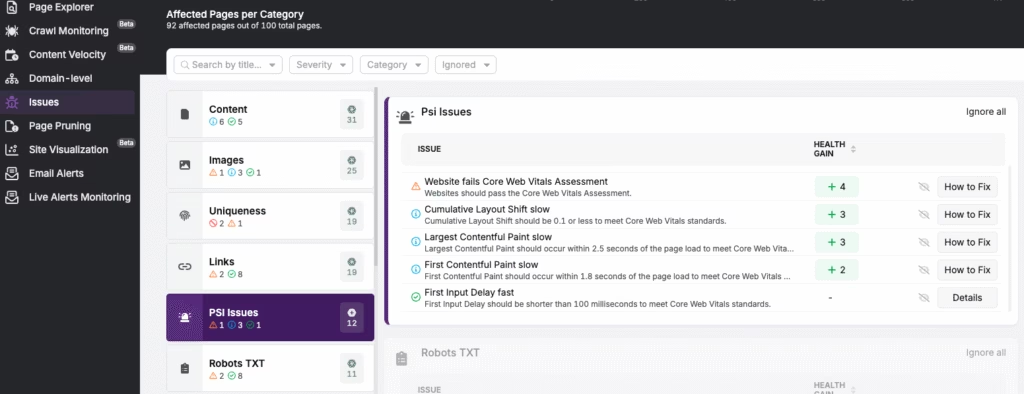
5 Tactics To Master Local Rankings Factors in 2025
These five tactics are designed to help you improve visibility, strengthen your presence, and stay fully aligned with the local ranking factors that drive results in 2025.
1. Optimize Profiles to Match Real Searches
Relevance prevails when your profile reflects natural language, trending queries, and real-world behavior. Ensure every part of your GBP includes:
- Category Selection: Choose precise categories that reflect your core offerings and eliminate anything that doesn’t.
- Business Name Relevance: Your business name should naturally include target search terms, but avoid keyword stuffing.
- Authoritative Link: Connect your profile to a page that gains trust through solid content, SEO strength, and contextual relevance.
- Fresh, Detailed Info: Frequently update services, hours, photos, and anything else that signals you’re active and relevant.
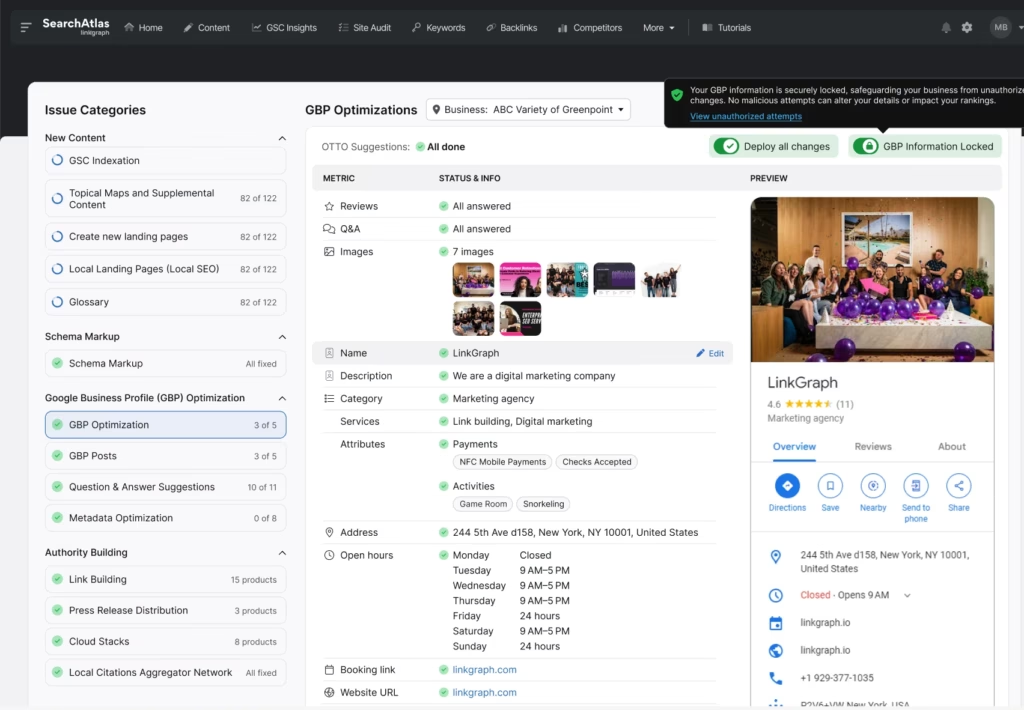
Then elevate your strategy with local keyword research:
- Local Intent Keywords: Determine what people are actually typing in your area.
- Natural-Language Phrases: Focus on specific searches like “best late-night tacos near Phoenix.”
- Monitoring Trending Keywords: Track emerging keywords tied to seasonality, new behaviors, or local events to stay ahead of shifts.
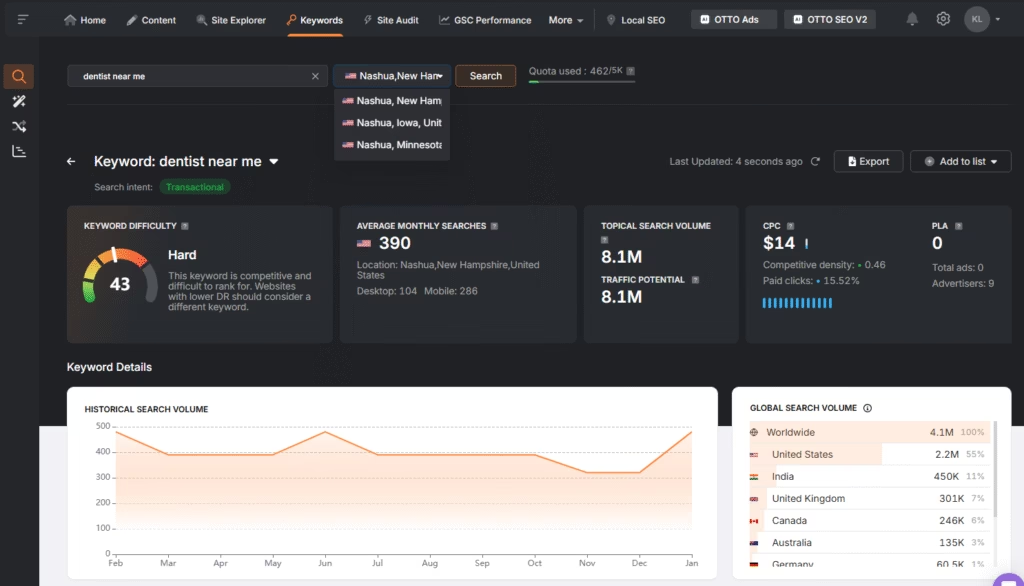
2. Establish Authority to Earn Local Trust
Build trust and authority at the local level by creating and publishing content that proves your business is active, credible, and deeply connected to the community. Here’s how to make your content work harder for local rankings:
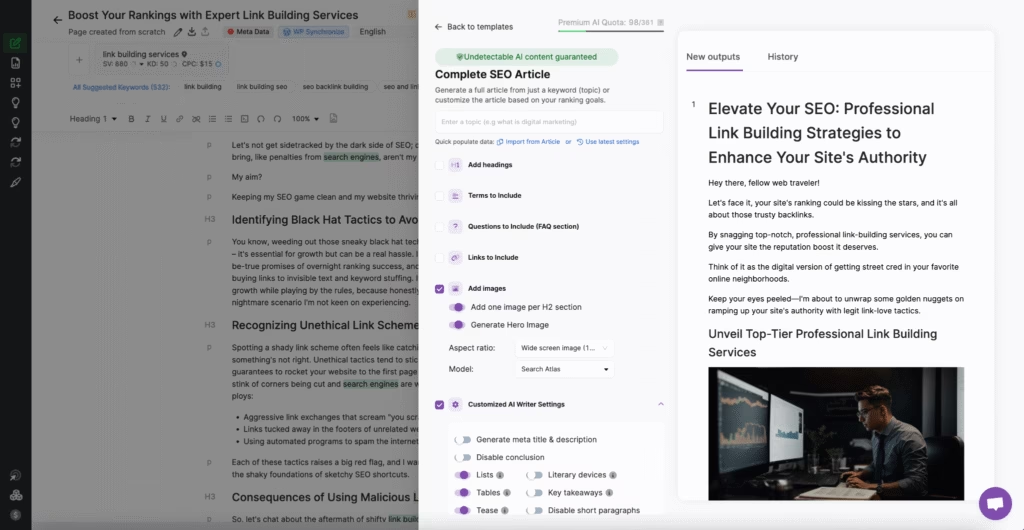
- Publish Firsthand Insights: Share your experience with regional trends, customer needs, or location-specific challenges your business solves.
- Highlight Local Customer Stories: Share reviews, testimonials, or case studies that include real people and places in your area.
- Create Helpful Local Resources: Build guides, checklists, or how-to articles tailored to local conditions.
- Develop Pages for Specific Areas: Use detailed, place-specific content that reflects the unique character of each area you serve.
Your site should prove that you’re part of the community with genuine expertise, not just another listing.
3. Invest in Citations to Strengthen Presence
Local rankings benefit when your business details appear consistently on credible directories and when other reputable sites link back to your content. Focus on citation management and relationship-based link-building:
- List Your Business on Trusted Local Platforms: Submit your business to reputable directories and platforms with strong domain authority.
- Use Aggregator Submissions: Distribute your data to a wide network through local citation builder and data aggregator tools.
- Keep NAP Consistent Everywhere: Use the exact same name, address, and phone number across all platforms to avoid confusion or duplicate listings.
- Prioritize Quality Over Quantity: Choose backlinks from websites that are trusted by your local audience and industry, instead of chasing volume.
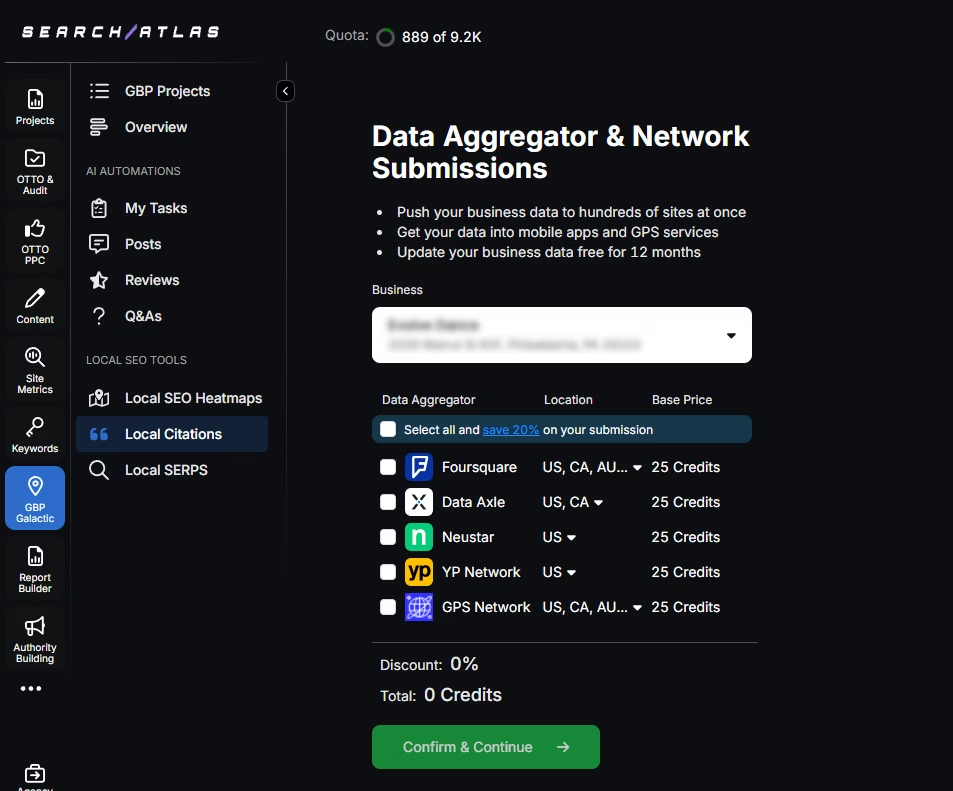
4. Engage Reviews to Boost Reputation
Reviews reflect your customer experience and provide a direct way to boost visibility across local platforms. Strengthen your reputation by encouraging feedback and staying consistently engaged:
- Reply to Every Review: Thank customers for positive reviews and handle concerns professionally when reviews are less favorable.
- Use Multiple Review Channels: Collect reviews on Yelp, Tripadvisor, and relevant industry platforms to build broader trust.
- Integrate Review Requests Into Your Workflow: Use QR codes, post-purchase emails, and checkout prompts to regularly invite feedback.
- Address Negative Reviews Transparently: Respond with empathy and offer solutions. Showing accountability encourages trust with future customers.
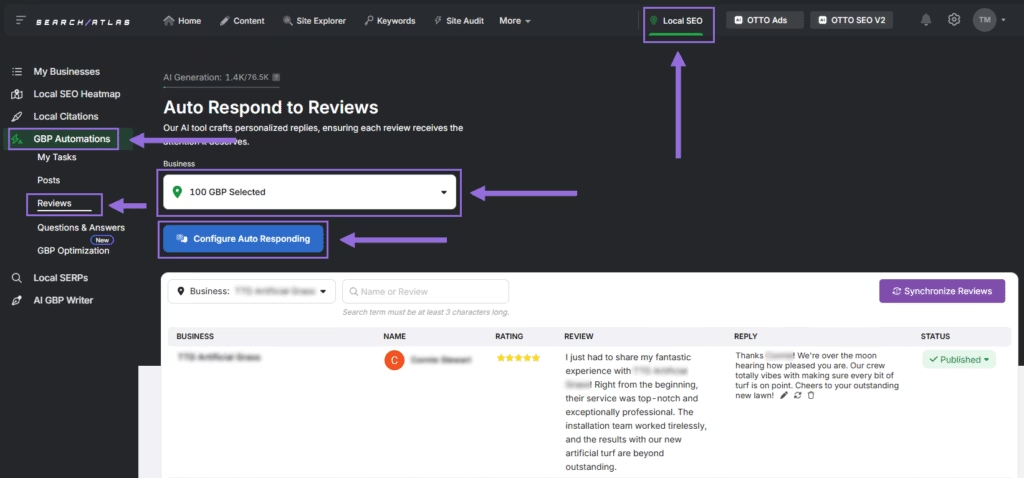
Use a Google Business Profile management software with automated response features to help you stay engaged and consistent, even as reviews scale.
5. Refine Mobile to Capture Nearby Searches
A smooth mobile experience makes it easier for nearby customers to find you, explore your offerings, and take action quickly. To stay visible and competitive, your website must perform flawlessly on every screen.
- Use Responsive Design: Design pages that automatically adjust layout, images, and navigation for all screen sizes.
- Speed Up Load Times: Compress files, streamline your code, and implement lazy loading to reduce delays.
- Optimize Visuals for Mobile: Use modern image formats like WebP and avoid heavy media that can slow down page rendering.
- Simplify Navigation: Make it easy for mobile users to click-to-call, get directions, or view important information without extra scrolling or zooming.
A Smarter Approach to Local Ranking Factors That Works
With AI reshaping search results, user behavior constantly shifting, and local competition growing, businesses need more than just a basic presence to succeed in local search.
From your Google Business Profile to reviews, citations, and hyperlocal content, success comes down to two things: how well you execute and how consistently you evolve with updates. ⚙️
But you don’t need to juggle five tools or spend hours managing every detail. Search Atlas brings all the local SEO tools you need into one simple, streamlined dashboard where you can:
- Update and manage your Google Business Profile
- Publish hyperlocal content and location pages
- Track keyword performance by city or region
- Build high-quality local backlinks
- Monitor and auto-respond to reviews
- And more…
With OTTO SEO, you don’t need to chase the algorithm. It’s the first AI agent that updates your website and GBP with one click.
Connect your GBP and GSC to let the AI analyze and generate precise local SEO recommendations for GBP tasks, posts, and more, allowing immediate and scheduled optimizations.
Your built-in AI assistant keeps your strategy sharp by automating updates, managing technical tasks, and syncing with the latest SEO trends—so you’re always moving with the market.
Test out all the features (including OTTO) and take full control of your local rankings with your FREE trial now! No commitment, cancel anytime.



